As is my habit, as I finished books in 2019 I reflected on them in a post for my blog as my primary platform for public reflection. Perhaps now I’ll just reflect by posting in my Goodreads account? In any case, here, one last time on Musicuentos, is a collection of reflections on what I read this year.
Must Read
Must read of the year:
To Stop a Warlord, Shannon Sedgwick Davis
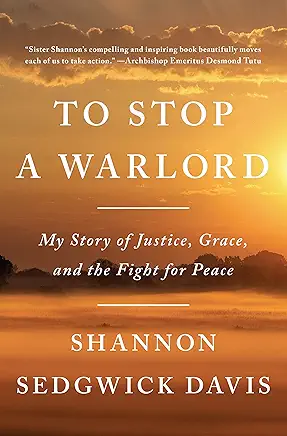 From Goodreads: Late one night in the summer of 2010, Shannon Sedgwick Davis, a lawyer, human rights advocate, and Texas mom to two young boys, first met the Ugandan general to discuss an unconventional plan to stop Joseph Kony,a murderous warlord who’d terrorized communities in four countries across Central and East Africa.
From Goodreads: Late one night in the summer of 2010, Shannon Sedgwick Davis, a lawyer, human rights advocate, and Texas mom to two young boys, first met the Ugandan general to discuss an unconventional plan to stop Joseph Kony,a murderous warlord who’d terrorized communities in four countries across Central and East Africa.
For twenty-five years, Kony and his Lord’s Resistance Army had killed over a hundred thousand people, displaced millions, and abducted tens of thousands of children, forcing them to become child soldiers. After meeting with survivors and community leaders, aid workers and lawmakers, it was clear that the current international systems were failing to protect the most vulnerable. Guided by the strength of her beliefs and convictions, Sedgwick Davis knew she had to help other parents to have the same right she had—to go to sleep each night knowing that their children were safe.
My take on it: I first learned about Sedgwick Davis and her book via her interview on the Storybrand podcast. I immediately added it to my must-read list, and now I encourage you to add it to yours. It’s riveting, it’s challenging, it’s an amazing story full of people who are doing real things to stop real evil, and you simply must read it. My top pick of the year.
Nine Perfect Strangers, Liane Moriarty
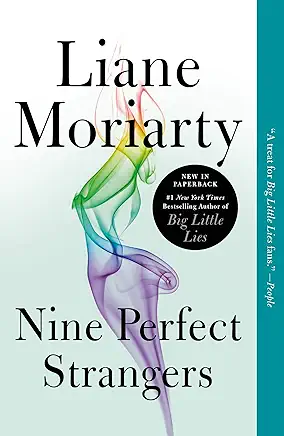 From Goodreads: Could ten days at a health resort really change you forever?
From Goodreads: Could ten days at a health resort really change you forever?
These nine perfect strangers are about to find out…
Nine people gather at a remote health resort. Some are here to lose weight, some are here to get a reboot on life, some are here for reasons they can’t even admit to themselves. Amidst all of the luxury and pampering, the mindfulness and meditation, they know these ten days might involve some real work. But none of them could imagine just how challenging the next ten days are going to be.
My take on it: I’m so glad I didn’t let the negative reviews on Goodreads turn me off of this book. I’d enjoyed Moriarty’s Big Little Lies and The Husband’s Secret, but so many reviewers said this book was not up to that level of writing. I disagree, heartily, and put it as one of my must-reads of 2019.
Imagine nine people who don’t know each other (there’s one couple, and one family of three – two parents and an adult daughter) heading off to an unconventional wellness retreat to hear a bizarrely charismatic and captivating Russian-Australian woman tell them, “You will not be the same person when you leave.” They’re all looking for something different, suffering from the things that swirl in all of us: grief, confusion, inadequacy, weakness, hopelessness, anger. The thing that draws you in is that you read in the characters what is in yourself, and as Moriarty changes to each character’s point of view chapter by chapter, you read “I’m only temporarily tragic,” “likely a memory he’d borrowed from a book or movie,” phrase after sentence that makes you think, “Yes, I know that experience! I feel that, too!” And she exquisitely figures out how to mock the predictability of the one plot line that you absolutely see coming, and then write it anyway.
And when other reviewers write disdainfully about the twist halfway through and how they subsequently gave up on the book, to that I say, it wasn’t a twist, it was a labyrinth. It kept getting twistier and darker and you think, “NO SHE DID NOT” and “NO THAT DID NOT HAPPEN” and “NO IT IS NOT” and then it is. I further do not understand criticism of the ending. Reader, the ending is brilliant.
When Breath Becomes Air, Paul Kalanithi
 From Goodreads: At the age of thirty-six, on the verge of completing a decade’s worth of training as a neurosurgeon, Paul Kalanithi was diagnosed with stage IV lung cancer. One day he was a doctor treating the dying, and the next he was a patient struggling to live. And just like that, the future he and his wife had imagined evaporated. When Breath Becomes Air chronicles Kalanithi’s transformation from a naïve medical student “possessed,” as he wrote, “by the question of what, given that all organisms die, makes a virtuous and meaningful life” into a neurosurgeon at Stanford working in the brain, the most critical place for human identity, and finally into a patient and new father confronting his own mortality.
From Goodreads: At the age of thirty-six, on the verge of completing a decade’s worth of training as a neurosurgeon, Paul Kalanithi was diagnosed with stage IV lung cancer. One day he was a doctor treating the dying, and the next he was a patient struggling to live. And just like that, the future he and his wife had imagined evaporated. When Breath Becomes Air chronicles Kalanithi’s transformation from a naïve medical student “possessed,” as he wrote, “by the question of what, given that all organisms die, makes a virtuous and meaningful life” into a neurosurgeon at Stanford working in the brain, the most critical place for human identity, and finally into a patient and new father confronting his own mortality.
My take on it: Those of us who have not been given an imminent death sentence in the form of fatal disease can only imagine the depth of feeling and grief and life that occurs between the news and the end. In that most tender of all journeys, this brain surgeon-turned-dying-cancer-patient offers us a front-row seat to his thoughts in this book. Beautiful thoughts, honest thoughts, a journey so unreal and yet so just-beyond-the-next-checkup for any of us.
My favorite quotes:
Even if I’m dying, until I actually die, I am still living.
…
Death, so familiar to me in my work, was now paying a personal visit. Here we were, finally face-to-face, and yet nothing about it seemed recognizable.
…
My state of knowledge was the same, but my ability to make lunch plans had been shot to hell.
…
Maybe, in the absence of any certainty, we should just assume that we’re going to live a long time. Maybe that’s the only way forward.
And of course, my favorite parts were the pieces of theological truth I didn’t know I was getting when I accepted Paul’s invitation to walk through his journey:
I, like most scientific types, came to believe in the possibility of a material conception of reality, un ultimately scientific worldview that would gran ta complete metaphysics, minus outmoded concepts like souls, God, and bearded white men in robes… . The problem, however, eventually became evident: to make science the arbiter of metaphysics is to banish not only God from the world but also love, hate, meaning–to consider a world that is self-evidently not the world we live in… .
If you believe that science provides no basis for God, then you are almost obligated to conclude that science provides no basis for meaning and, therefore, life itself doesn’t have any… .
Scientific methodology is the product of human hands and thus cannot reach some permanent truth… .
Science may provide the most useful way to organize empirical, reproducible data, but its power to do so is predicated on its inability to grasp the most central aspects of human life: hope, fear, love, hate, beauty, envy, honor, weakness, striving, suffering, virtue.
Human knowledge is never contained in one person. It grows from the relationships we create between each other and the world, and still it is never complete. And Truth comes somewhere above all of them.
And then, in the end, he wrote a message to his daughter. It’s crushingly beautiful and reminds us that life is a breath away from becoming the air of memory someone else breathes, if you do it right:
When you come to one of the many moments in life where you must give an account of yourself, provide a ledger of what you have been, and done, and meant to the world, do not, I pray, discount that you filled a dying man’s days with a sated joy, a joy unknown to me in all my prior years, a joy that does not hunger for more and more but rests, satisfied. In this time, right now, that is an enormous thing.
Worth Your Time
Sing, Unburied, Sing – Jesmyn Ward
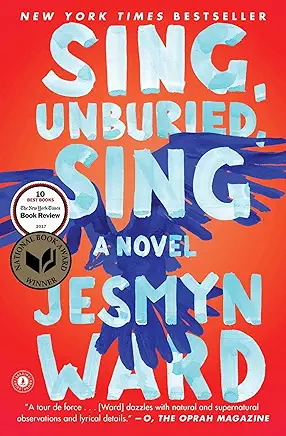 From Goodreads: Jojo is thirteen years old and trying to understand what it means to be a man. He doesn’t lack in fathers to study, chief among them his Black grandfather, Pop. But there are other men who complicate his understanding: his absent White father, Michael, who is being released from prison; his absent White grandfather, Big Joseph, who won’t acknowledge his existence; and the memories of his dead uncle, Given, who died as a teenager.
From Goodreads: Jojo is thirteen years old and trying to understand what it means to be a man. He doesn’t lack in fathers to study, chief among them his Black grandfather, Pop. But there are other men who complicate his understanding: his absent White father, Michael, who is being released from prison; his absent White grandfather, Big Joseph, who won’t acknowledge his existence; and the memories of his dead uncle, Given, who died as a teenager.
His mother, Leonie, is an inconsistent presence in his and his toddler sister’s lives. She is an imperfect mother in constant conflict with herself and those around her. She is Black and her children’s father is White. She wants to be a better mother but can’t put her children above her own needs, especially her drug use. Simultaneously tormented and comforted by visions of her dead brother, which only come to her when she’s high, Leonie is embattled in ways that reflect the brutal reality of her circumstances.
When the children’s father is released from prison, Leonie packs her kids and a friend into her car and drives north to the heart of Mississippi and Parchman Farm, the State Penitentiary. At Parchman, there is another thirteen-year-old boy, the ghost of a dead inmate who carries all of the ugly history of the South with him in his wandering. He too has something to teach Jojo about fathers and sons, about legacies, about violence, about love.
My take on it: I might have put this book as a must-read if I’d known coming into it that the book was essentially a ghost story, and one with voodoo tinges at that. Not my thing. I’d heard “great American road story,” and I’m not sure that’s quite right. My favorite aspect was how conflictingly deep the characters were: you hate Leonie because she’s a druggie deadbeat mom, but you’re rooting for her because you get the deep pain. You hate Michael because he’s a druggie jailbird deadbeat dad, but you’re rooting for him because you want it to be the best of all worlds for Jojo. You love Jojo and Pop from the first page to the last, though.
The Turn of the Key – Ruth Ware
 From Goodreads: When she stumbles across the ad, she’s looking for something else completely. But it seems like too good an opportunity to miss—a live-in nannying post, with a staggeringly generous salary. And when Rowan Caine arrives at Heatherbrae House, she is smitten—by the luxurious “smart” home fitted out with all modern conveniences, by the beautiful Scottish Highlands, and by this picture-perfect family.
From Goodreads: When she stumbles across the ad, she’s looking for something else completely. But it seems like too good an opportunity to miss—a live-in nannying post, with a staggeringly generous salary. And when Rowan Caine arrives at Heatherbrae House, she is smitten—by the luxurious “smart” home fitted out with all modern conveniences, by the beautiful Scottish Highlands, and by this picture-perfect family.
What she doesn’t know is that she’s stepping into a nightmare—one that will end with a child dead and herself in prison awaiting trial for murder.
My take on it: The innovative format is interesting; it’s written as a long letter from the accused to her lawyer. In one sense, I did guess what was going on and I was right. In another sense, I totally did not guess what was happening. The book was creepy, but not supernatural (see above, I’m not into ghost stories). It was a good thriller read to me, because if it had turned out to be a haunting I’d have been frustrated.
Harry Potter and the Sorcerer’s Stone – J.K. Rowling
 From Goodreads: Harry Potter’s life is miserable. His parents are dead and he’s stuck with his heartless relatives, who force him to live in a tiny closet under the stairs. But his fortune changes when he receives a letter that tells him the truth about himself: he’s a wizard. A mysterious visitor rescues him from his relatives and takes him to his new home, Hogwarts School of Witchcraft and Wizardry. …
From Goodreads: Harry Potter’s life is miserable. His parents are dead and he’s stuck with his heartless relatives, who force him to live in a tiny closet under the stairs. But his fortune changes when he receives a letter that tells him the truth about himself: he’s a wizard. A mysterious visitor rescues him from his relatives and takes him to his new home, Hogwarts School of Witchcraft and Wizardry. …
Though Harry’s first year at Hogwarts is the best of his life, not everything is perfect. There is a dangerous secret object hidden within the castle walls, and Harry believes it’s his responsibility to prevent it from falling into evil hands. But doing so will bring him into contact with forces more terrifying than he ever could have imagined.
My take on it: I know, I’m way late to this party. My husband had read the first few books years before we met, and they were one of the things that turned him from a nonreader to a reader in his college years. I’m not sure what took the rest of us so long, but this year, we decided to start the Harry Potter books as our family readaloud. My husband is still the biggest fan of the family, but this first book certainly got us set on the journey and I feel like we’ve finally been accepted into this exclusive club we’d never been able to join in our previous confusion over words like “muggle” and place names like “Diagon Alley.”
Harry Potter and the Chamber of Secrets – J.K. Rowling
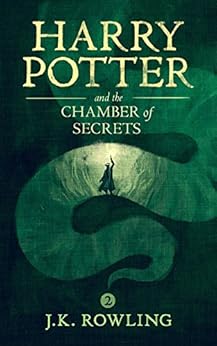 From Goodreads: The Dursleys were so mean and hideous that summer that all Harry Potter wanted was to get back to the Hogwarts School for Witchcraft and Wizardry. But just as he’s packing his bags, Harry receives a warning from a strange, impish creature named Dobby who says that if Harry Potter returns to Hogwarts, disaster will strike
From Goodreads: The Dursleys were so mean and hideous that summer that all Harry Potter wanted was to get back to the Hogwarts School for Witchcraft and Wizardry. But just as he’s packing his bags, Harry receives a warning from a strange, impish creature named Dobby who says that if Harry Potter returns to Hogwarts, disaster will strike
And strike it does. For in Harry’s second year at Hogwarts, fresh torments and horrors arise, including an outrageously stuck-up new professor, Gilderoy Lockhart, a spirit named Moaning Myrtle who haunts the girls’ bathroom, and the unwanted attentions of Ron Weasley’s younger sister, Ginny.
But each of these seem minor annoyances when the real trouble begins, and someone — or something — starts turning Hogwarts students to stone. Could it be Draco Malfoy, a more poisonous rival than ever? Could it possibly be Hagrid, whose mysterious past is finally told? Or could it be the one everyone at Hogwarts most suspects . . . Harry Potter himself?
My take on it: Continuing our family readaloud, we really enjoyed the second book as well. The obsession with the new professor was a little annoying; the way the story unraveled some of the threads from the first book was well done.
Addicted to Outrage – Glenn Beck
From Goodreads: America is addicted to outrage, we’re at the height of a twenty-year bender, and we need an intervention. In Addicted to Outrage, New York Times bestselling author Glenn Beck addresses how America has become more and more divided—both politically and socially. Americans are now less accepting, less forgiving, and have lost faith in many of the country’s signature ideals, he says. We are quick to point a judgmental finger at the opposing party, are unwilling to doubt their own ideologies, and refuse to have any self-awareness whatsoever. Beck states that our current downward spiral will ultimately lead to the destruction of everything America has fought so hard to preserve. This is not simply a Republican problem. This is not simply a Democratic problem. This is everyone’s burden, and we need to think like recovering addicts and change.
With a nod to a traditional twelve-step program, each chapter encourages self-reflection and growth and shows us the way to a more hopeful, happy future. Beck draws from his own life experiences and includes relevant examples for each step, from families who learned to forgive killers to remembering to believe in something greater than ourselves to understanding the importance of humility. Addicted to Outrage is a timely and necessary guide for how Americans, right and left, must change to survive.
My take on it: I kinda sorta knew who Glenn Beck was, and I expected this book to be a predictable conservative tome, but I was drawn by the title and intrigued that someone might be addressing the viral outrage social media and the 24-hour news spin cycle have sparked:
Our capacity for outrage has reached the point of the ridiculous.
And addressing the reasons why we’re so fond of outrage:
Outrage excuses one from having to tell the truth or exhibiting moral behavior.
…
It’s no longer enough to just be right; you have to grind your opponent into the cyberdirt.
…
We have literally become chemically addicted to the social rewards we receive online, through digital thumbs and text-message acronyms and emoticons. Virtue-signaling our friends and trolling our foes have replaced actual virtue and spirited debate with our peers.
Overall, I was completely surprised.
Caveat: I had one disappointment in the book, and that was the section on faith. Glenn Beck is a Mormon (or a member of the church formerly known as Mormonism). He came to this faith by what I can only describe as religion shopping, and then by being drawn in by how very nice and well-meaning the people are. According to the book, he’s still quite unconvinced that this “faith” of his is the right one, but he’s willing to stick up for you on the other side if he’s right, and you stick up for him on the other side if you’re right. It’s the total lack of logic or reasonable foundation in truth there that bothers me so much.
However, the rest of the book was a surprising bounce from one side to the other, often not taking sides at all, and that being the point:
The first thing a nation must do in a crisis is to bring clarity. The media and special interest groups are doing the opposite.
It was frighteningly apocalyptic because of where he sees all this outrage having brought us:
I can see the icebergs in the water, and I have counted the lifeboats… I accept responsibility for my part in all of this.
He’d present a chapters on how America has perpetuated the greatest evil, and then follow it with one on how America has brought about the greatest good. With calls for us to understand how far we’ve actually come:
(The drop in global rate of children dying is) like averting twenty-seven major plane crashes filled with children every single day…. It’s such a wonderful development that you could forgive a modern society for losing track of some of the real problems that remain. Instead, we do the opposite. We are on a constant search for kneeling players, cultural appropriation, white privilege, and tweets that are slightly askew.
He’d blast Fox one one hand and blast MSNBC on the other. He’d convincingly take a stand for gun rights and fiscal responsibility and fighting climate change with all we’ve got, seemingly on the same page.
We don’t have to agree on anything – other than the fact we are ready to stop splitting this country into two enemy camps.
…
For those who want to hang on to their anger, understand that if Glenn Beck, Jimmy Kimmel, Obama, and Trump were all hit by a bus while re-creating the Abbey Road album cover, none of our problems would be gone.
I felt many of his comments deeply. In the last several years, I supported our very controversial governor in Kentucky, primarily because he was probably one of the most pro-life governors this country has ever seen, and I vote pro-life above any other single issue. I also saw him as a brilliant businessman with the potential to find real economic solutions to the problems facing Eastern Kentucky where everyone knows we need to move away from coal but no one’s proposing viable ways those families are going to feed themselves instead of overdosing on meth in despair over their poverty. But this governor did not get along with educators. He angered and pushed away my beloved Kentucky teachers at every turn. I wrote to him, I wished he could see the inconsistencies and how letting his frustration get out of control meant he was saying the stupidest things about teachers. But I felt I was not allowed to voice any support for Bevin out loud or online without my personal character or support for education being called into question, because
Somewhere we began judging people not by their character or their actions but by their political affiliation and beliefs.
Across social media and news outlets, and especially in educator communities, this governor was portrayed as the devil incarnate, like he woke up every morning determined to end education opportunities for anyone but the rich. As Beck writes,
We now require 100 percent acceptance of every policy, statement, and haircut a politician has ever had.
But I wish we could all hear Beck’s warnings and advice:
We must grow thicker skin.
…
We must stop spending so much time in our “safe space.”
…
Has China returned our jobs yet? What is the latest Kanye tweet about? I need a fix; I haven’t had any outrage in a while.
…
Outrage is the misdirection; chaos is the real enemy.
…
Now we are bombarded by so many different stories and opinions that we honestly cannot remember where we first heard something, and if we heard it more than once we know it to be true.
His conclusion:
I have met the enemy, and the enemy is indeed us.
I really, really think that no matter your political affiliation, this book is well worth your attention. With others, he encourages us to use an acronym when deciding what to post or retweet:
THINK: Is it Truthful, Helpful, Inspiring, Necessary, Kind.
…
Pause and look at your kids, at our kids, and at least ask yourself if that brief surge of emotion you’re going to feel is really worth it.
And a fitting reminder:
No matter how much you or anyone else explains or complains, huffs and puffs and yells and threatens, there still are only distant rumors that once, years ago, in a galaxy far away, someone used social media to successfully change another person’s political opinion.
Evita – Nicholas Fraser & Marysa Navarro
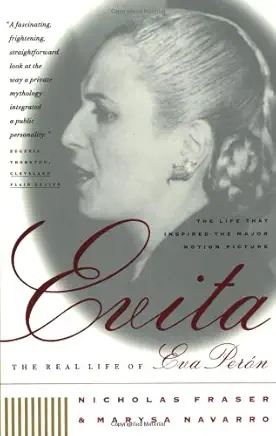 From Goodreads: The story begins in a dusty village lost in the Argentine pampas, where a girl, born out of wedlock, scrambles her way to the capital city by the time she is fifteen. It ends with the embalmed corpse of Eva Peron being hidden away by nervous politicians for fear that if the working people of Argentina knew where it was buried, it would inspire them to revolution.In between Eva Peron became first the actress Eva Duarte, then the mistress of Colonel Perón, then, in October 1945 after the “shirtless ones” had swept Peron into office, the president’s wife. In the colorful, tumultuous setting of postwar Argentina, she wielded a power–spiritual and practical–that has few parallels outside of hereditary monarchy. She was literally idolized by millions but was hated and feared by many as well. She became Evita, the legend.
From Goodreads: The story begins in a dusty village lost in the Argentine pampas, where a girl, born out of wedlock, scrambles her way to the capital city by the time she is fifteen. It ends with the embalmed corpse of Eva Peron being hidden away by nervous politicians for fear that if the working people of Argentina knew where it was buried, it would inspire them to revolution.In between Eva Peron became first the actress Eva Duarte, then the mistress of Colonel Perón, then, in October 1945 after the “shirtless ones” had swept Peron into office, the president’s wife. In the colorful, tumultuous setting of postwar Argentina, she wielded a power–spiritual and practical–that has few parallels outside of hereditary monarchy. She was literally idolized by millions but was hated and feared by many as well. She became Evita, the legend.
My take on it: My husband got me the book the year he took me to Argentina, because I love Argentina, and I love the movie, and I’m fascinated by Evita. (We didn’t make it to Recoleta cemetery to see her grave, but we did go to the Evita museum!) What a story. The emphasis is definitely on real; he seems to have put together a very forthright view of her life instead of focusing on all the myth. I was hoping to have more clarity on whether she was one of the good guys or not, but I don’t think any such clarity exists – at the end I was still unsure whom to root for.
Crazy Rich Asians – Kevin Kwan
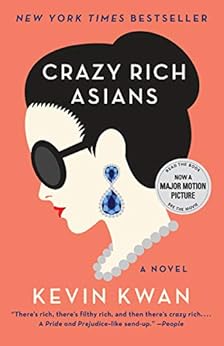 From Goodreads: When Rachel Chu agrees to spend the summer in Singapore with her boyfriend, Nicholas Young, she envisions a humble family home, long drives to explore the island, and quality time with the man she might one day marry. What she doesn’t know is that Nick’s family home happens to look like a palace, that she’ll ride in more private planes than cars, and that with one of Asia’s most eligible bachelors on her arm, Rachel might as well have a target on her back.
From Goodreads: When Rachel Chu agrees to spend the summer in Singapore with her boyfriend, Nicholas Young, she envisions a humble family home, long drives to explore the island, and quality time with the man she might one day marry. What she doesn’t know is that Nick’s family home happens to look like a palace, that she’ll ride in more private planes than cars, and that with one of Asia’s most eligible bachelors on her arm, Rachel might as well have a target on her back.
My take on it: I was divided on whether to put this book under “worth your time” or “meh,” so it’s the last book in this section and sort of bleeds into the next. Maybe file it under “guilty pleasure” or “books for an airplane ride if you have a airplane phobia.” Overall, highly entertaining, and also quite shallow, full of incredibly shallow people you will (probably) never relate to and will soon forget (hopefully).
Meh
Harry Potter and the Prisoner of Azkaban
 From Goodreads: Harry Potter’s third year at Hogwarts is full of new dangers. A convicted murderer, Sirius Black, has broken out of Azkaban prison, and it seems he’s after Harry. Now Hogwarts is being patrolled by the dementors, the Azkaban guards who are hunting Sirius. But Harry can’t imagine that Sirius or, for that matter, the evil Lord Voldemort could be more frightening than the dementors themselves, who have the terrible power to fill anyone they come across with aching loneliness and despair. Meanwhile, life continues as usual at Hogwarts. A top-of-the-line broom takes Harry’s success at Quidditch, the sport of the Wizarding world, to new heights. A cute fourth-year student catches his eye. And he becomes close with the new Defense of the Dark Arts teacher, who was a childhood friend of his father. Yet despite the relative safety of life at Hogwarts and the best efforts of the dementors, the threat of Sirius Black grows ever closer. But if Harry has learned anything from his education in wizardry, it is that things are often not what they seem. Tragic revelations, heartwarming surprises, and high-stakes magical adventures await the boy wizard in this funny and poignant third installment of the beloved series.
From Goodreads: Harry Potter’s third year at Hogwarts is full of new dangers. A convicted murderer, Sirius Black, has broken out of Azkaban prison, and it seems he’s after Harry. Now Hogwarts is being patrolled by the dementors, the Azkaban guards who are hunting Sirius. But Harry can’t imagine that Sirius or, for that matter, the evil Lord Voldemort could be more frightening than the dementors themselves, who have the terrible power to fill anyone they come across with aching loneliness and despair. Meanwhile, life continues as usual at Hogwarts. A top-of-the-line broom takes Harry’s success at Quidditch, the sport of the Wizarding world, to new heights. A cute fourth-year student catches his eye. And he becomes close with the new Defense of the Dark Arts teacher, who was a childhood friend of his father. Yet despite the relative safety of life at Hogwarts and the best efforts of the dementors, the threat of Sirius Black grows ever closer. But if Harry has learned anything from his education in wizardry, it is that things are often not what they seem. Tragic revelations, heartwarming surprises, and high-stakes magical adventures await the boy wizard in this funny and poignant third installment of the beloved series.
My take on it: As with the other Harry Potter titles, we did this book as a family readaloud, but my problem with this one was that it seemed to resolve itself three or four times before the end, which made it feel as though it dragged on forever. So it’s the highest on my list of meh reads, but still landed here.
Truly Madly Guilty, Liane Moriarty
From Goodreads: Six responsible adults. Three cute kids. One small dog. It’s just a normal weekend. What could possibly go wrong?
Sam and Clementine have a wonderful, albeit, busy life: they have two little girls, Sam has just started a new dream job, and Clementine, a cellist, is busy preparing for the audition of a lifetime. If there’s anything they can count on, it’s each other.
Clementine and Erika are each other’s oldest friends. A single look between them can convey an entire conversation. But theirs is a complicated relationship, so when Erika mentions a last minute invitation to a barbecue with her neighbors, Tiffany and Vid, Clementine and Sam don’t hesitate. Having Tiffany and Vid’s larger than life personalities there will be a welcome respite.
Two months later, it won’t stop raining, and Clementine and Sam can’t stop asking themselves the question: What if we hadn’t gone?
My take on it: I’m a fan of Moriarty, clearly, since Nine Perfect Strangers made my must-read list and I know many readers didn’t like that one. But this book drove me crazy. The most fitting word I can give to describe it is manipulative. In Nine Perfect Strangers I had no idea the twist was coming. In this one, you know there is a one big huge important event that is the pivot point of the whole novel. From the beginning pages you know it’s there. But Moriarty teases and manipulates on every page until you don’t care about the story, you just want to figure out what the big event is so you can be done with it. So the end result was, I didn’t care about the story.
Mild spoiler: Props for healed relationships in the end, though- there’s not enough of that going around in the latest reads.
Walking on the Ceiling, Aysegül Savas
From Goodreads: After her mother’s death, Nunu moves from Istanbul to a small apartment in Paris. One day outside of a bookstore, she meets M., an older British writer whose novels about Istanbul Nunu has always admired. They find themselves walking the streets of Paris and talking late into the night. What follows is an unusual friendship of eccentric correspondence and long walks around the city.
M. is working on a new novel set in Turkey and Nunu tells him about her family, hoping to impress and inspire him. She recounts the idyllic landscapes of her past, mythical family meals, and her elaborate childhood games. As she does so, she also begins to confront her mother’s silence and anger, her father’s death, and the growing unrest in Istanbul. Their intimacy deepens, so does Nunu’s fear of revealing too much to M. and of giving too much of herself and her Istanbul away. Most of all, she fears that she will have to face her own guilt about her mother and the narratives she’s told to protect herself from her memories.
My take on it: The recommendation for this book on The Skimm caught my eye because I’m always up for diversifying my reading and I was working with refugees from Turkey at the time. Let’s just say I was disappointed.
Let me borrow a phrase from someone else’s review: “captivating yet elusive.” I must have forgotten to be captivated, but elusive is the perfect word to describe this. I don’t mind books containing a series of vignettes. I don’t mind the absence of a plot or the absence of character development. What made this book so elusive was the absence of both. I read every page waiting to figure out what the book was about – was it about M? About Nunu? About Paris? About the conflict in Turkey? About family? About abuse or mental illness or dying or fame or pretending or any one of a hundred things the author went half an inch deep on and then abandoned, leaving you with nothing but unanswered questions you didn’t even know how to phrase? In the end, the book seemed to be about nothing, and I’m not sure how you publish that, much less sell it.
Less, Andrew Sean Greer
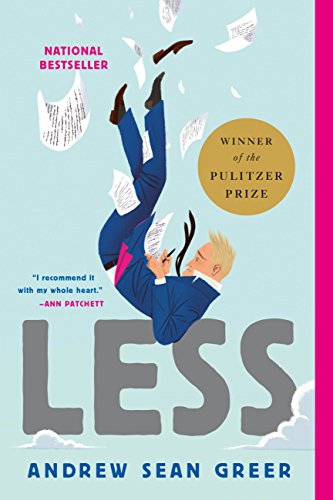 From Goodreads: You are a failed novelist about to turn fifty. A wedding invitation arrives in the mail: your boyfriend of the past nine years is engaged to someone else. You can’t say yes–it would be too awkward–and you can’t say no–it would look like defeat. On your desk are a series of invitations to half-baked literary events around the world.
From Goodreads: You are a failed novelist about to turn fifty. A wedding invitation arrives in the mail: your boyfriend of the past nine years is engaged to someone else. You can’t say yes–it would be too awkward–and you can’t say no–it would look like defeat. On your desk are a series of invitations to half-baked literary events around the world.
QUESTION: How do you arrange to skip town?
ANSWER: You accept them all.
What would possibly go wrong? Arthur Less will almost fall in love in Paris, almost fall to his death in Berlin, barely escape to a Moroccan ski chalet from a Saharan sandstorm, accidentally book himself as the (only) writer-in-residence at a Christian Retreat Center in Southern India, and encounter, on a desert island in the Arabian Sea, the last person on Earth he wants to face. Somewhere in there: he will turn fifty. Through it all, there is his first love. And there is his last.
My take on it: I’ll start by saying I only finished this book because it’s on my bucket list to read all the Pulitzers, and this received the 2018 award.
I stopped reading Nicholas Sparks a long time ago because he descended into the same banal romantic deceptive mess everyone else was writing, but two of his early books I will never forget. In The Notebook and The Wedding, Sparks wrote brilliant love stories, about love that was faithful, love that transcended time and place, the kind of love that ripples through life and past death. Less is (maybe?) supposed to be about love, but it is not, because it is not that kind of committed, meaningful love, which is the only kind I really want to read about.
The most infuriating thing to me about the book was how the author threw around the word “love” with no apparent definition. It wasn’t commitment – there wasn’t a couple in the book, married or otherwise, that showed any of that. It seemed at times to have something to do with parties, maybe with drugs, maybe with alcohol, maybe with heady vistas in faraway places, who knows? Several times he references the complete boredom between couples who have been married a long time. This superficial “love is today’s choice” kind of story always makes me deeply grateful for the depth of the “love is every day’s choice” story my husband has been writing with me for 12 and a half years.
Mild spoiler alert – in the end, you’re supposed to be impressed with a happy ending, but don’t be deceived – if the rest of the book is any indication, you can give this couple perhaps a few days, a few years at best, before something (boredom? distraction? writer’s block?) sets in and they’re done. Across the world of trashy literature, authors are lined up to sell us this lie – and now we’re giving Pulitzers for it.
A better reviewer than I hit another nail on the head: “I feel like I just read 272 pages of a man who feels angsty, uses his resources to travel around the world, and then gets a happy ending with little to no actual agency or self-development on his part.”
El códice 632, José Rodrigues dos Santos
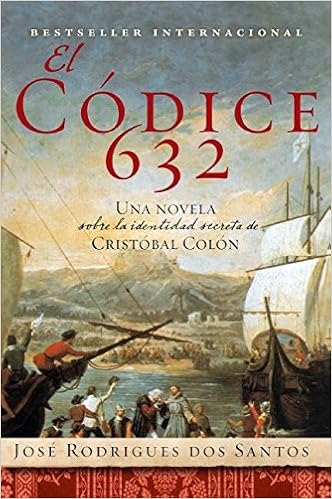 From Goodreads: Tomás Noronha, profesor de historia de la Universidad Nova de Lisboa y experto en criptoanálisis y en lenguas antiguas, ha sido contratado para completar las investigaciones de un viejo historiador que recientemente ha fallecido. Entre los papeles del difunto, Tomás hallará un enigmático mensaje que parece ser la clave de esos estudios y que, según el desaparecido académico, pueden hacer cambiar el rumbo de la historia contada: Moloc Ninundia Omastoos Así, Noronha irá adentrándose en un misterio que se complica progresivamente y que lo conducirá a través de varios países y continentes tras la pista del secreto mejor guardado y silenciado de la época del descubrimiento de América: la verdadera identidad de Cristóbal Colón. Con una prosa fluida y una trama que atrapa desde la primera página, José Rodrigues dos Santos nos conduce por un rocambolesco laberinto de pistas que embarcan al lector en una aventura llena de enigmas y secretos encubiertos; una historia donde confluyen la imaginación, el rigor histórico, el mito y la leyenda; una historia repleta de falsas apariencias y de hechos silenciados que pretenden esconder la última verdad. Basado en documentos históricos reales, El Códice 632 nos demuestra que la historia oficial se construye a partir de hechos provisionalmente verdaderos y que tal vez tras el análisis y la investigación se descubran como definitivamente falsos.
From Goodreads: Tomás Noronha, profesor de historia de la Universidad Nova de Lisboa y experto en criptoanálisis y en lenguas antiguas, ha sido contratado para completar las investigaciones de un viejo historiador que recientemente ha fallecido. Entre los papeles del difunto, Tomás hallará un enigmático mensaje que parece ser la clave de esos estudios y que, según el desaparecido académico, pueden hacer cambiar el rumbo de la historia contada: Moloc Ninundia Omastoos Así, Noronha irá adentrándose en un misterio que se complica progresivamente y que lo conducirá a través de varios países y continentes tras la pista del secreto mejor guardado y silenciado de la época del descubrimiento de América: la verdadera identidad de Cristóbal Colón. Con una prosa fluida y una trama que atrapa desde la primera página, José Rodrigues dos Santos nos conduce por un rocambolesco laberinto de pistas que embarcan al lector en una aventura llena de enigmas y secretos encubiertos; una historia donde confluyen la imaginación, el rigor histórico, el mito y la leyenda; una historia repleta de falsas apariencias y de hechos silenciados que pretenden esconder la última verdad. Basado en documentos históricos reales, El Códice 632 nos demuestra que la historia oficial se construye a partir de hechos provisionalmente verdaderos y que tal vez tras el análisis y la investigación se descubran como definitivamente falsos.
My take on it: The quickest way for me to tell you how I feel about is this “international bestseller” that it took me four years to finish it. I’d put the Spanish edition on my wish list and my husband got it for me for Christmas, so I felt obligated to finish it, but oh my, what a tedious book. Caution, I’m about to spoil the whole thing for you, but since there’s no reason for you to ever waste your precious reading time on it, consider yourself spared.
José Rodrigues dos Santos is a Portuguese historian and a very good one, I’m sure. A novelist, he is not. He should have stuck with history, because it’s clearly his first love. In this book you’ll find predictable characters (who didn’t see the Swedish bombshell as a nefariously planted seducer) and pages and pages of description of historical buildings (who really needs 10 pages of description for a single monument?) and pages and pages and PAGES of historical explanation, especially of codes. Think dozens of pages on historical aspects of secret codes, dozens more on the history of Jewish codes, all in all the most in-depth and mind-numbing exposition on the subject you’ll ever find in something purporting to be a thriller. Let me spare you the experience and tell you the entire journey is designed to lead you to this history-shattering revelation: It’s possible Christopher Columbus was not Genovese; he was actually a Portuguese nobleman, last name Colonna, with some Italian blood and probably also some secret Jewish blood, and he sailed for Spain to the New World as part of a plot to distract them from the real riches in the Indies, which was the Portuguese throne’s primary interest. See now, isn’t that so life-changing it ought to require almost 650 pages to tell?



